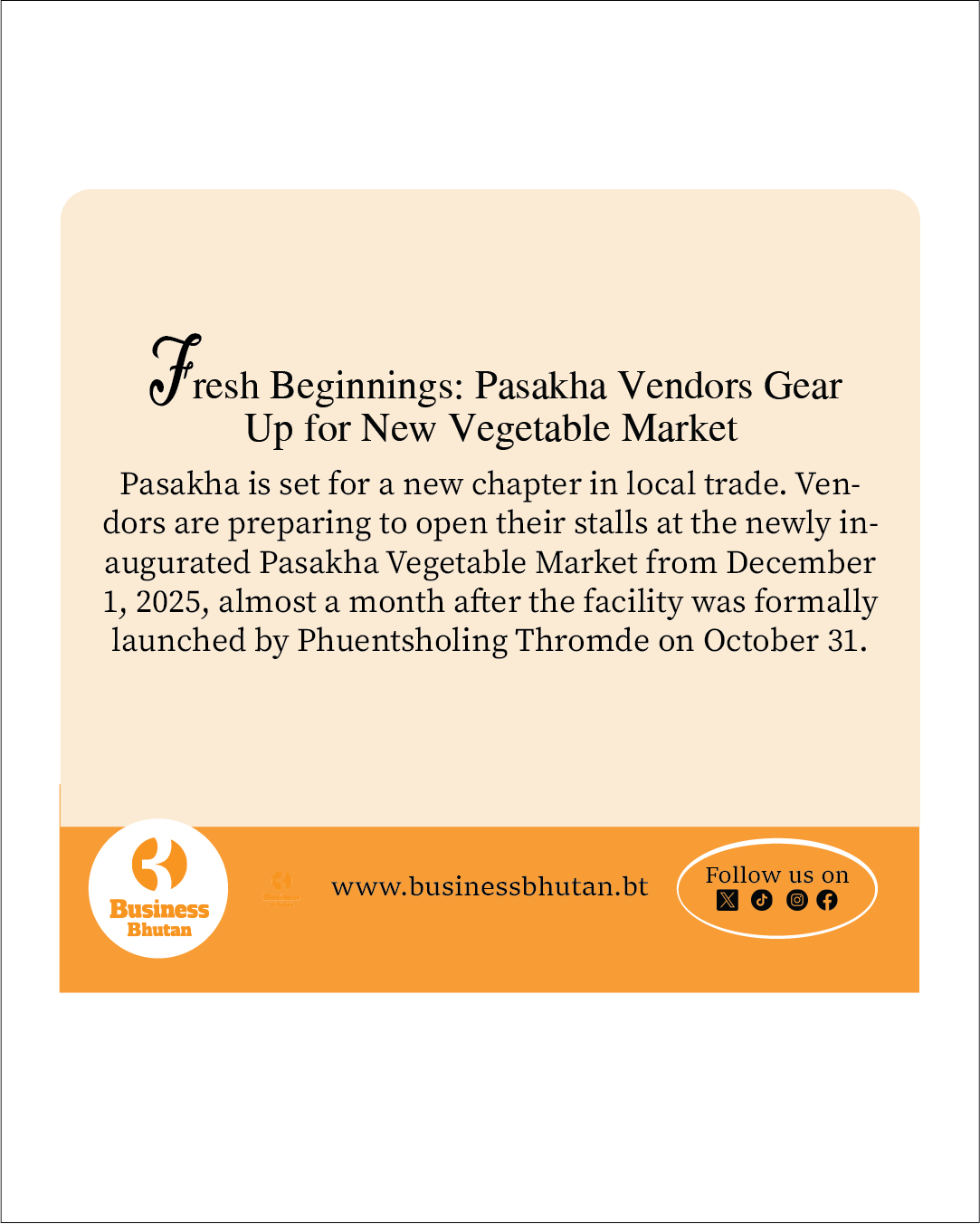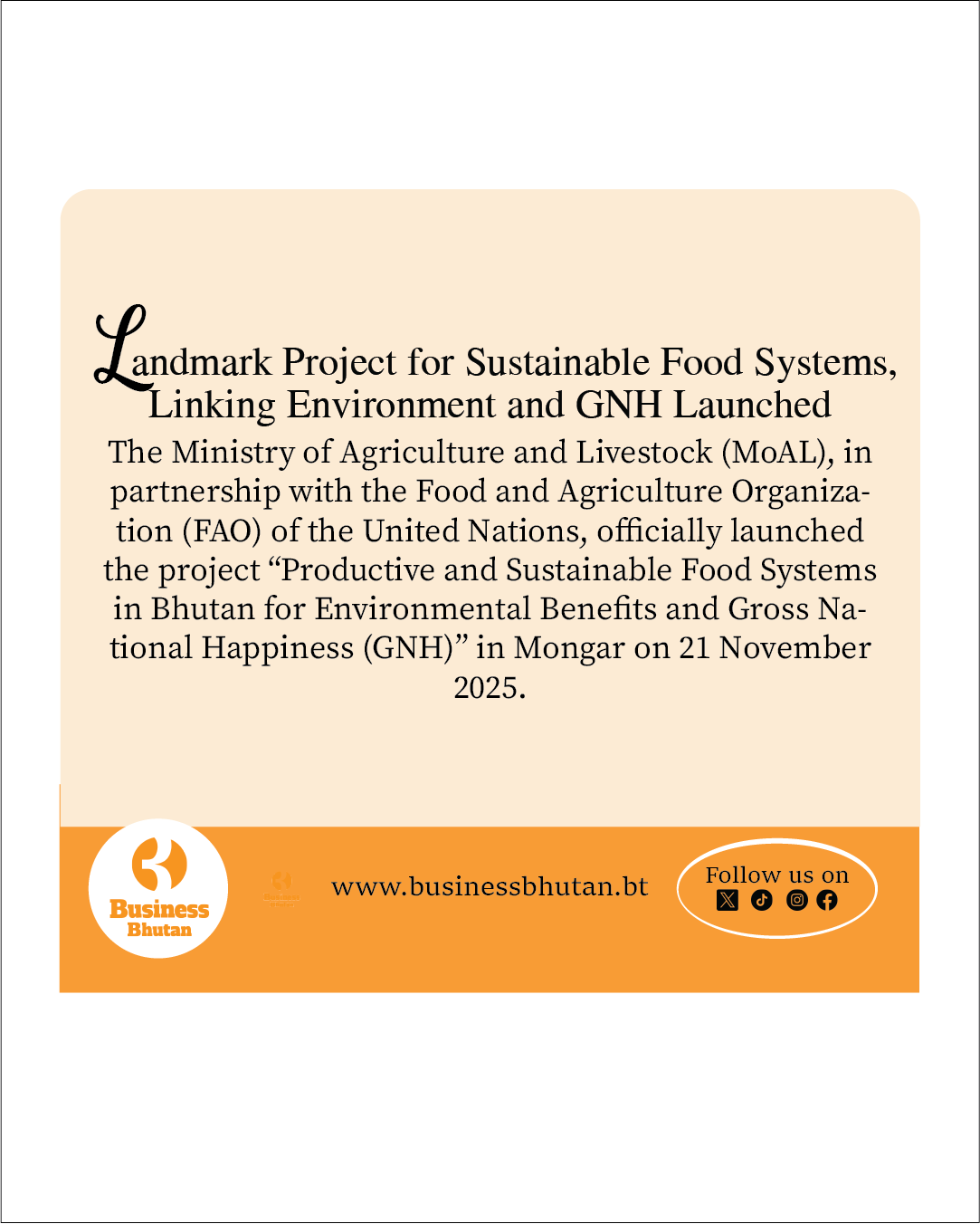In an effort to curb rural-urban migration and tap into the potential of young, educated individuals, Bhutan’s dairy cooperatives are taking strategic steps to create meaningful employment opportunities for youth within local communities. Leading this rural transformation are the Zambala Milk Cooperative in Norbugang, Pemagatshel, and the Lhamo Norguen Phuendey Detshen Dairy Processing Unit in Lhuentse—initiatives that combine youth empowerment with agricultural modernization.
Globally, youth are recognized as key drivers of innovation and sustainable growth, particularly in sectors like dairy farming, where technology and modern practices can significantly increase productivity and profitability. Both cooperatives are working to integrate educated youth into their operations, promoting the use of environmentally sustainable techniques and Information and Communication Technologies (ICT) to enhance efficiency and quality.
Established in 2019, the Zambala Dairy Group operates under the Commercial Agriculture and Resilient Livelihoods Enhancement Programme (CARLEP). Currently, the cooperative employs six staff members, including one woman and two young individuals, with plans for future expansion.
Pema Wangda, Chairperson of the cooperative, underscored the importance of local youth engagement. “We believe that dairy cooperatives can generate meaningful employment for young people and reduce the migration of youth to urban centers,” he said. “Our aim is to help them stay close to their families, their roots, and their land.”
One such example is Pema Selden, a 31-year-old from Norbugang who has been with the cooperative for six years. “Establishing agri-livestock cooperatives in villages helps create jobs for school graduates and discourages rural exodus,” she shared. “Working near my family and farmland lowers my living costs and gives me a sense of purpose.”
To support its operations, the cooperative has leased a private residence for 15 years, converting it into a Milk Processing Unit (MPU). Supported by CARLEP-IFAD, the MPU is equipped with modern machinery, such as a vacuum packing machine, freezer, milk chiller, yogurt processor, and butter churner collectively valued at approximately Nu 6 million.
With 65 registered members (36 women and 29 men), the cooperative continues to grow. It provides both training and accommodation for staff to ensure professional development and operational efficiency. While preference is given to applicants from the Nganglam region, the cooperative welcomes all qualified youth.
Similarly, the Lhamo Norguen Phuendey Detshen Dairy Processing Unit, established in May 2021 in Wangshing, Minjey Gewog, is creating opportunities for local youth. Funded with Nu 2 million through CARLEP-IFAD, the unit currently employs two young people and aims to expand its production of diverse dairy products—including yogurt, buttermilk, cheese, and butter—sourced from milk supplied by farmer groups in the area.
Kencho Gyeltshen, Chairperson of the unit, voiced concern about the rural brain drain. “Too many school graduates are leaving the villages and heading to Thimphu in search of jobs, which only adds to the city’s congestion and unemployment,” he said. “Instead, we should focus on creating dignified, stable employment within our own communities.”
Thanks to improved cattle breeds and training initiatives supported by the project, farmers in Minjey Gewog have seen milk production soar, from just 80 liters to 250 liters daily in winter, and 300 to 500 liters during summer. The new MPU is expected to further boost income generation, while also improving hygienic standards, storage, processing, and distribution of dairy products.
These initiatives underscore Bhutan’s broader commitment to sustainable rural development. By strengthening the dairy sector, investing in local infrastructure, and empowering youth, the country is actively working to reduce urban migration, create resilient livelihoods, and promote balanced regional development.
Through strategic collaboration between cooperatives, government programs like CARLEP, and community members, Bhutan is laying the foundation for a modern, inclusive rural economy—one that offers not just survival, but success, for the next generation of farmers, entrepreneurs, and change makers.
Sangay Rabten from Pemagatshel




![Fresh Beginnings: Pasakha Vendors Gear Up for New Vegetable Market - Duplicate - [#16963] Fresh Beginnings: Pasakha Vendors Gear Up for New Vegetable Market - Duplicate - [#16963]](https://businessbhutan.bt/wp-content/uploads/2025/11/Asset-200.png)











